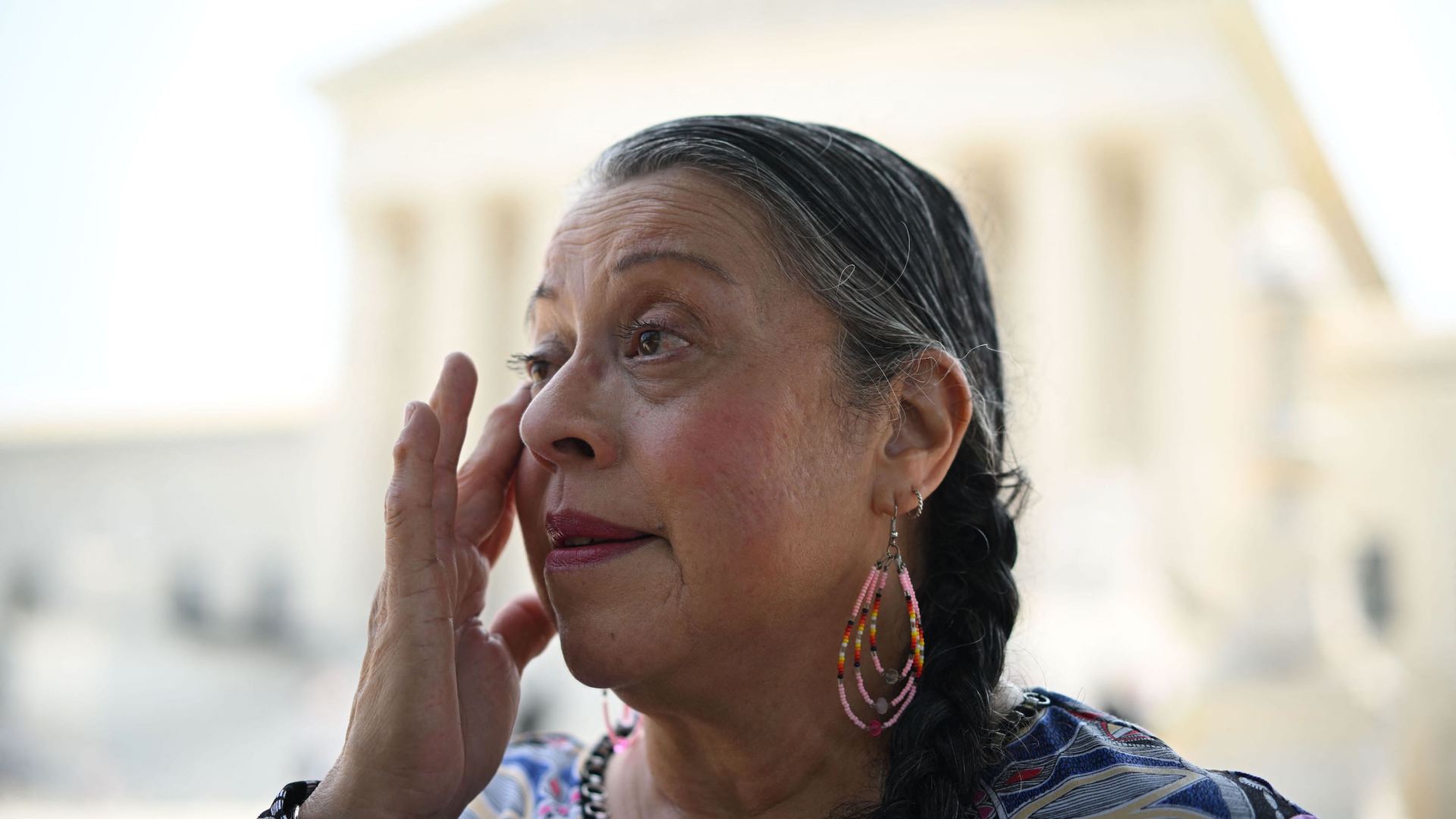Native American tribes will retain priority for placement in the adoption of Native American children after a US Supreme Court ruling on Thursday.
The high court rejected all challenges to the federal Indian Child Welfare Act (ICWA) in a 7–2 ruling by Justice Amy Coney Barrett. Justices Clarence Thomas and Samuel Alito dissented.
An evangelical couple, along with two other adoptive couples, had challenged the law on multiple grounds, one being that it hinders non-Native families from fostering and adopting Native American children.
The court rejected every argument and defended the fundamental constitutional principles behind ICWA.
“This case is about children who are among the most vulnerable: those in the child welfare system,” wrote Barrett in the decision. She shared a comment from a Choctaw chief who testified in Congress in 1978, when ICWA became a federal law: “Culturally, the chances of Indian survival are significantly reduced if our children, the only real means for the transmission of the tribal heritage, are to be raised in non-Indian homes and denied exposure to the ways of their people.”
Justice Neil Gorsuch, who handled many cases involving Native American affairs out West before coming to the high court, wrote a concurring opinion that detailed the history of the federal government forcing child removal from Native American families through boarding school initiatives, including through some missionary-run schools. He noted that surveys showed “approximately 25–35 percent of all Indian children [were] separated from their families” by 1974.
The court avoided the thorniest issue in its ruling: whether ICWA’s rules for child placement were unconstitutionally race-based. The challengers argued that ICWA ignores all other issues of children’s best interest in favor of placing them with a tribe member.
The court ruled that the plaintiffs did not have standing to bring that challenge. Justice Brett Kavanaugh, in a concurring opinion, said he hoped the court would consider that “serious” issue in the future.
It was an unexpected victory for the tribes. Even liberal justice Elena Kagan at oral arguments had expressed some skepticism about whether the law put the interests of the tribe over the “welfare” of children. Some states had passed state versions of ICWA in anticipation of it being overturned.
Christian adoption agencies did not file briefs in the case. One brief from the Christian Alliance for Indian Child Welfare gathered stories from Native children who said they were shuttled between foster homes or returned to abusive parents instead of going to a non-Native adoptive family because of ICWA.
Native American Christians have seen on the ground how messy and sensitive these foster and adoption cases can be. They say ICWA isn’t perfect, but in general they have supported the law. Adoption agency staffers say that all cases of child removal are painful and messy, not just ones involving ICWA.
“I celebrate the decision of the SCOTUS, as it recognizes the sovereignty of the indigenous nations located within the United States,” said Carol Bremer-Bennett, the head of World Renew, the relief arm of the Christian Reformed Church, in an email. Bremer-Bennett is herself Navajo and was adopted into a Dutch Reformed family. “Each child placement into a forever home is unique and often complicated. The goal should always be made with the best interest of providing a loving and stable home to nourish the whole child, including their ethnic and cultural identity. I know how cherished children are by every tribe and that we can and should trust those indigenous nations to make these placements with the best interest of each child at the heart.”
Bremer-Bennett’s adoption took place before ICWA, and it was a closed adoption, so she did not have paperwork to become an enrolled member of the Navajo nation. She struggled with grief over the disconnection from her tribe and not knowing her clan.
That also meant that under ICWA, she, a Navajo woman, would have a harder time adopting Native American children, something she and her husband felt called to do. They knew a Navajo birth mother who wanted them to adopt her child after the girl had been in a children’s home for years.
Bremer-Bennett wrote an article about her struggles, and Ted Charles, a Navajo from the Christian Reformed Church, contacted her.
“He said, ‘No Navajo should be without your clan. I’m going to adopt you as my sister,’” she recalled. “It wasn't a legal adoption. It was a ceremonial adoption.”
Now, thanks to that ceremonial adoption, when she introduces herself, she can say her clan. As she and her husband worked through the court process to adopt her daughter, she prayed with Charles constantly for seven days. A judge approved the adoption. Their daughter still has a relationship with her biological mother who is Navajo. Bremer-Bennett and her husband have also another adopted Navajo daughter.
“I have peace,” said Bremer-Bennett. “I know whose child I am. I know the Creator as my Savior, Redeemer, and parent and friend.”
Other Native American Christians working in adoption have emphasized serving vulnerable children through tribes and trying to keep children connected to their culture when possible.
Different cultures have different understandings of “what is best for the child,” said Charles Robinson, who is Choctaw and leads a Christian ministry to Native communities called The Red Road.
He and his wife have worked alongside families in the adoption process. If a child is adopted outside the tribe, he said, “it’s been very, very important to us and to the non-Native families adopting that the kids maintain and have an understanding of their tribal culture and families.”











